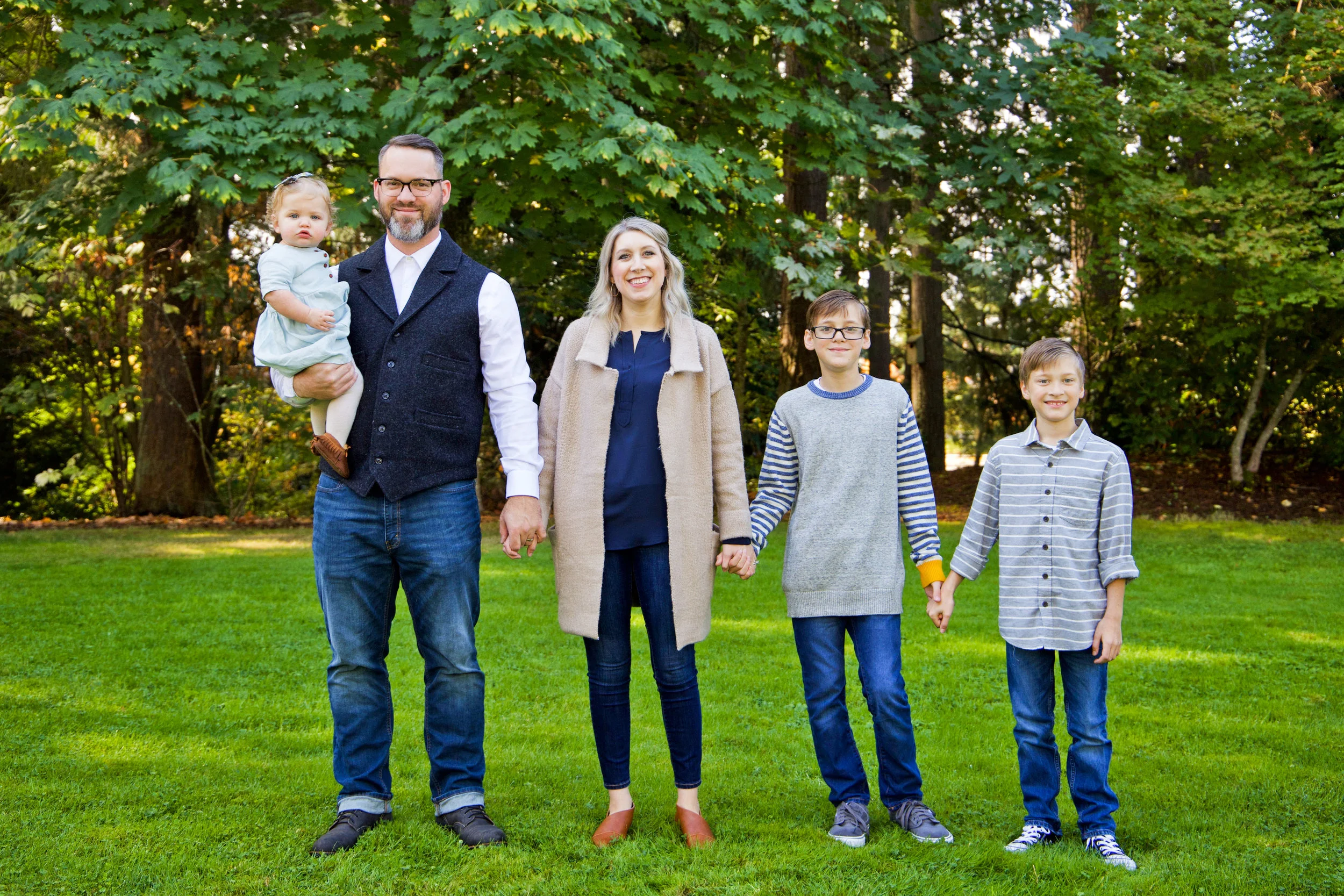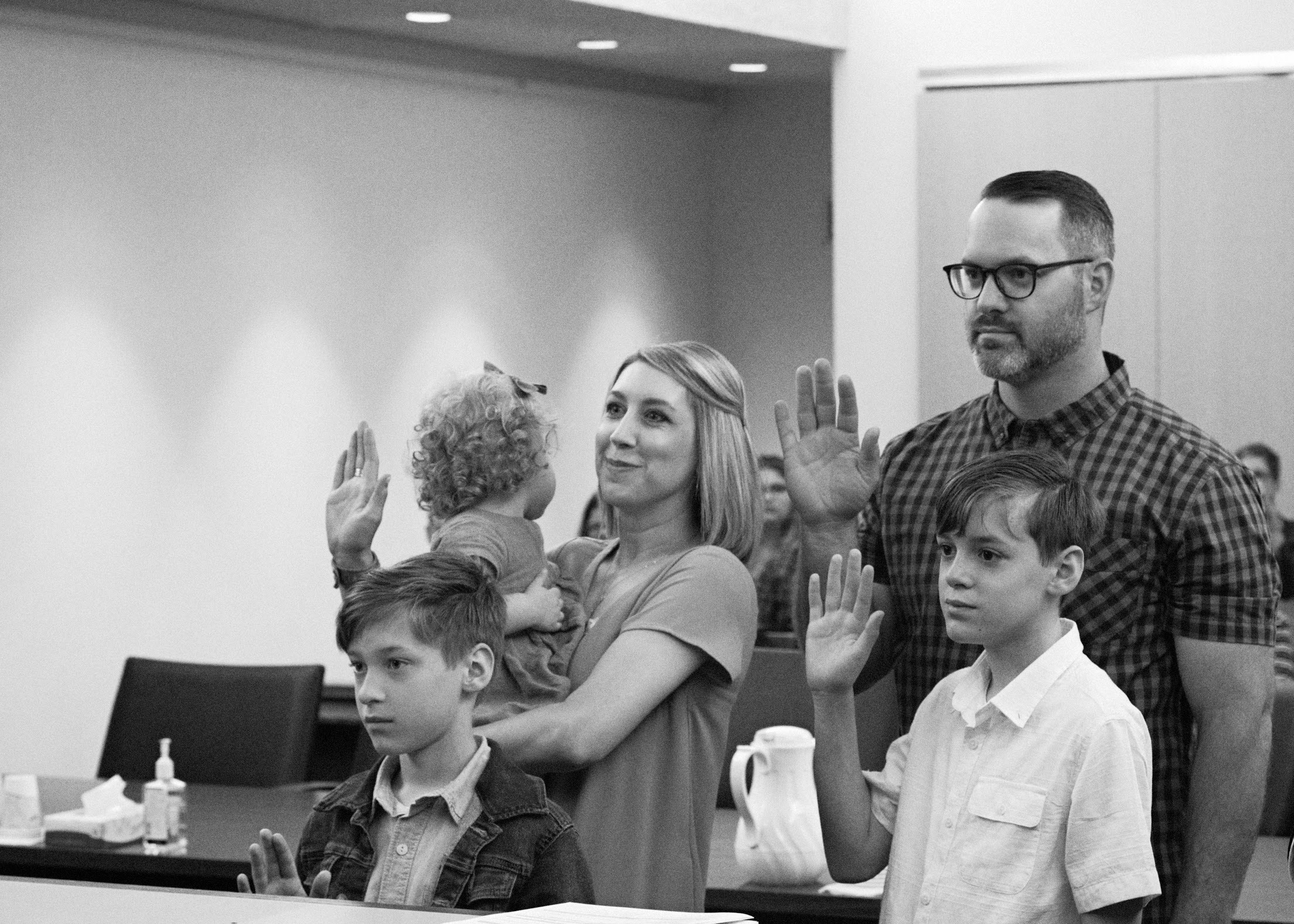My husband and I blindly entered the world of foster care in June 2016. We knew very little about what we were getting into. I imagine if we had, we may not have continued.
We received our first call shortly after receiving our foster care license. Despite our fears of saying “yes” there was no way we could say “no” and so twenty-four hours later we brought home a three day old baby girl. We bonded and attached quickly even in the midst of the whirlwind of social worker visits, doctor appointments, and parent visitation.
The most common fear and reason families choose not to become foster parents is the fear of becoming attached only to have the child be returned to their family of origin. This is a valid fear that I knew well. My worst-case scenario fear was loving and losing.
One night as I rocked this baby girl, who I now loved as if I bore I her, violent sobs shook my body as I pondered the possibility of her leaving our home. The desire to be her forever mom quickly turned into closed fisted entitlement as I listed all the sacrifices I was making for her that her biological mother was not. I was enduring the sleepless nights. I was providing food, shelter, and clothing. I was the one who had just spent days living at Seattle Children’s Hospital with her after she contracted an infection. I was doing everything and yet this “irresponsible” woman might get to be her mom after all? She was going to benefit from the work that I had done?
The Holy Spirit was so gentle with me in that moment as he brought the truth of the gospel to mind. “This is what Christ did for you.” It wasn’t audible but I heard it so clearly in my head it might as well have been. You see, in reality I was no different than her mother (Romans 3:22-23). I had broken God’s law and my sin separated me from Him. I deserved nothing but death and hell yet because of the sacrifice that Jesus paid I received forgiveness and life. I benefit from Jesus’ work.
This is the foundational “why“ to foster care.
“This is what Christ did for you.”
The work of Jesus on my behalf—his sinless life, his sacrificial death, his resurrection from the dead, and his ascension to the right hand of the Father—not only compels me to do foster care but it empowers me. Foster care is hard. The brokenness of the system, the stories of the families affected, and the loss experienced is too much to bear. Yet, “we rejoice in the hope of the glory of God. Not only that, but we rejoice in our sufferings, knowing that suffering produces endurance, and endurance produces character, and character produces hope, and hope does not put us to shame, because God’s love has been poured into our hearts by the Holy Spirit who has been given to us.” (Romans 5:1-5). Because God’s love has been poured into me, I can now pour His love into others. And so can you. There are many ways to practically pour the love of Christ into the lives of those affected by foster care, including the children, the biological family, the foster family, and even social workers who tirelessly work to manage the cases. Here are three ways you can become involved:
Become a licensed foster parent.
The decision to become licensed should be made with much prayer, consideration, and conversation with those you are close with. The process to become licensed may take anywhere from 3 months to a year. It requires training and an in-depth home study. You may choose to get licensed directly through the state or through a private agency, such as Olive Crest. If you would like to meet or discuss the possibility, send me an email.
Support a foster family.
There are families in your community, and even in Sound City Bible Church, who are currently foster parents. Their weekly schedule most likely includes multiple parent/child visitations, meetings with social workers, added appointments to counselors, therapists, and doctors, or court hearings. Practical support is one way you can serve these families. Tangible ways you may consider committing to support a family include: providing a meal once a month, providing occasional childcare to allow mom and dad to get a date night, or donating financially to relieve some of the added expenses that may come with adding more children to the home.
Support your local Department of Children, Youth, and Families office (DCYF).
DCYF is the state agency for child welfare. It is true that the system is broken but within the “system” are people who have seemingly impossible jobs. They work tirelessly with little, to no, thanks. There are volunteer opportunities and ways to help support these workers and help lighten the load a bit. Organizations like Office Moms & Dads help with children in the office while the social worker locates a home, other volunteers clean visitation rooms or organize the clothing closet that holds supplies for children who are new to care. Additionally, a small token of appreciation goes a long way: Thank-you cards, treats for the office staff, or even everyday items such as travel hand sanitizer, tissues, and granola bars for social workers who are on the go. For more information and opportunities to support your local DCYF office contact Fostering Together.


